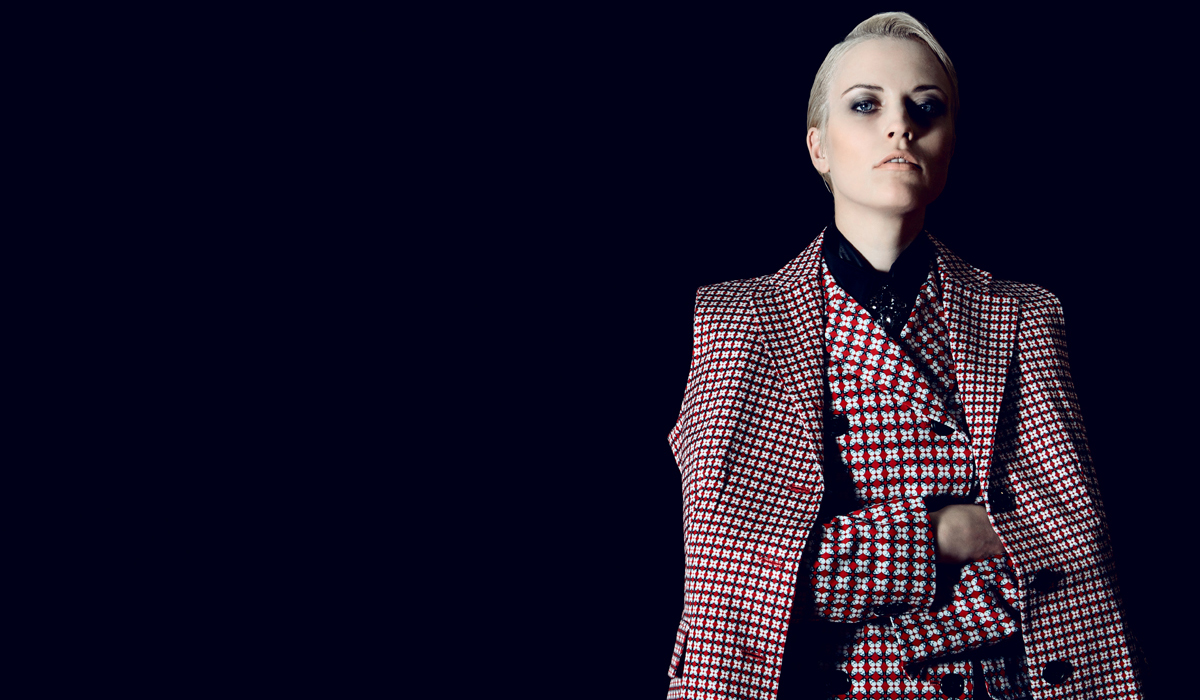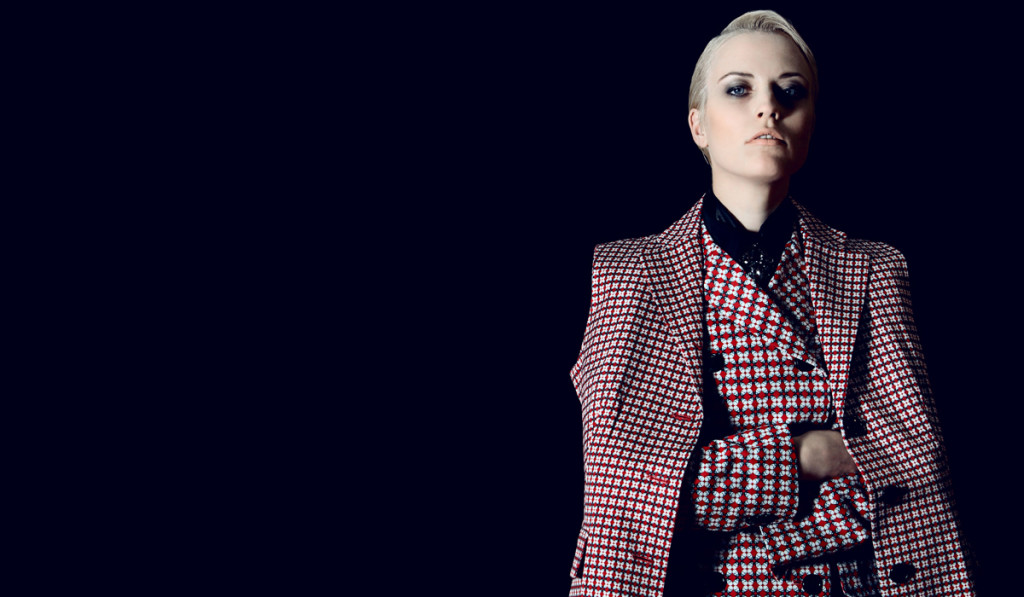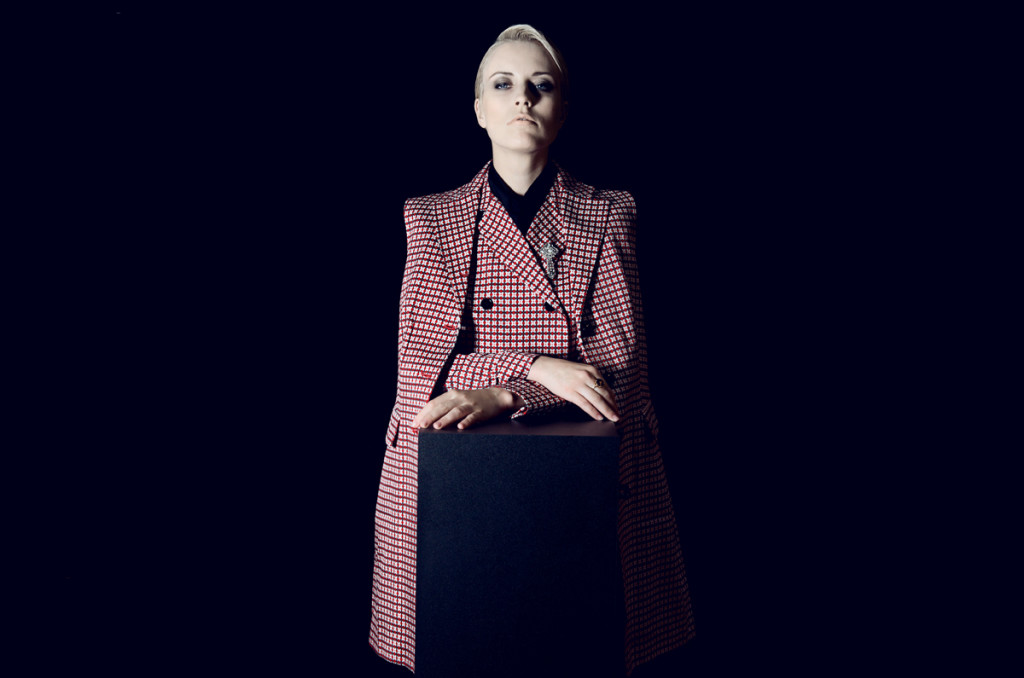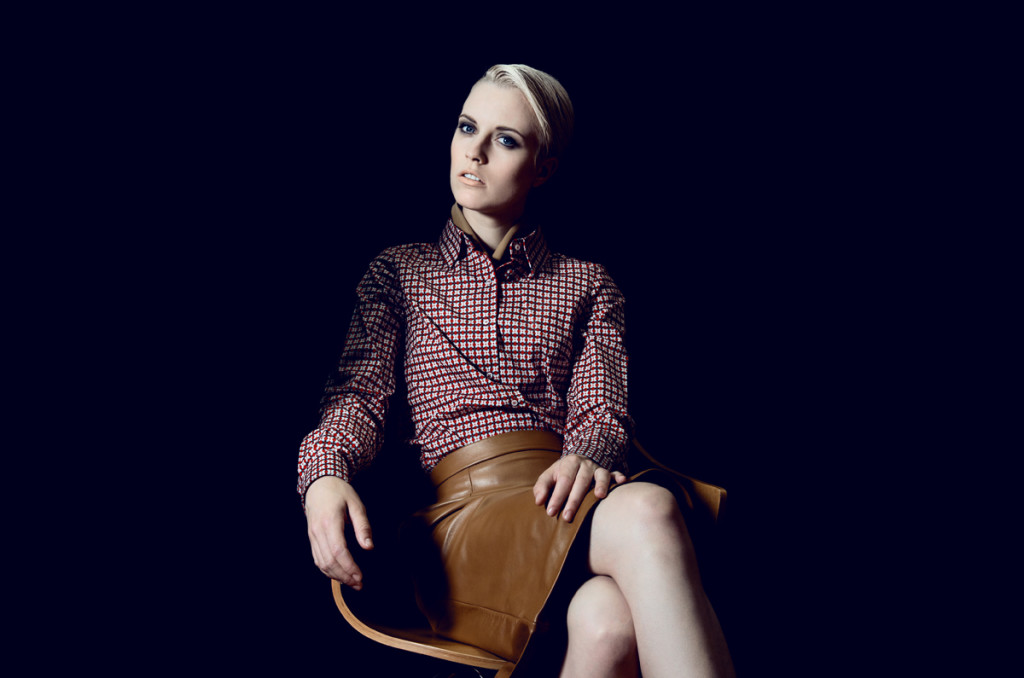Primo posto alle finali nazionali del Triumph Inspiration Award 2010, terzo a quelle internazionali a Londra.
Una vetrina alla Rinascente per il progetto Collision con Herno. Vittoria del Next Generation_Camera Nazionale della Moda Italiana, che gli ha permesso di presentare la sua collezione donna durante la Fashion Week nel febbraio 2012.
Questi sono solo alcuni dei traguardi raggiunti da Ludovico Loffreda, un giovane designer promettente, laureato allo IED di Milano e già pienamente inserito nel fashion system. Gli abbiamo posto qualche domanda, convinti che il suo futuro sia tutto rose e…sfilate.
Dopo aver lavorato e disegnato per grandi aziende e importanti nomi del settore ora sei Junior Designer/Assistant Head Designer Men presso l’ufficio stile uomo di una tra le più importanti maison di moda. Il tuo stile denota una mescolanza di culture e filosofie. A cosa ti ispiri e cosa vuoi comunicare attraverso le tue creazioni?
Streetwear minimal e ‘50/’90 cercano, provano a coesistere in un’unica silhouette.
Le linee dell’immaginario urbano, dalle strutture dei palazzi al movimento delle auto, convergono sui capi e ne disegnano le forme.
Cosa vuole il pubblico, il loro atteggiamento.
Una femminilità classica anni ‘50 sezionata attraverso la filosofia del crossover berlinese; una sperimentazione che dà vita a un proposta sportswear chic prettamente sartoriale.
Quale è la tua giornata tipo? Cosa fai per continuare a tenere in moto il tuo estro creativo?
La mattina presto, durante il tragitto per andare al lavoro, osservo tutto ciò che mi circonda. Ogni dettaglio può essere fonte di ispirazione. La creatività si coltiva in team con il continuo scambio di idee e di informazioni. Per le mie collezioni sfrutto la sera, la notte e le pause pranzo quando possibile.
Hai partecipato, e vinto, diversi contest e manifestazioni di moda. Come affronti la tensione dovuta ad impegni così importanti?
Per affrontare la tensione mi concentro sul lavoro. Fino all’ultimo momento prima di sfilare apporto le ultime modifiche, che spesso sono quelle che mi soddisfano di più.
Già durante il tuo corso di studi hai ottenuto importanti riconoscimenti e soddisfazioni. Cosa ricordi dei tuoi inizi, le emozioni e paure, e cosa consiglieresti a chi coltiva il sogno di diventare un importante stilista?
Il mio consiglio è di credere nei propri sogni ma soprattutto di investire nelle proprie capacità. Saper lavorare con gli altri: individuare talenti e i punti deboli propri e del proprio team.
Nato in provincia di Frosinone, hai studiato economia a Roma e poi finalmente Fashion Design a Milano. La tua storia è l’esempio di chi inseguendo i suoi sogni ha ottenuto il meritato successo. Cosa ti ha portato a questo cambio di percorso e c’è qualcosa che cambieresti del tuo percorso formativo?
Ho sempre avuto una forte passione per il disegno. Già durante gli studi superiori la mia attenzione si stava spostando sempre di più verso il fashion system, ma il vero cambio di percorso è avvenuto solo dopo che sono riuscito a convincere mio padre che questo era la mia strada. In tutta onestà se non fosse stato per mia madre, forse, non ci sarei mai riuscito. Anche se gli studi di economia furono una scelta di ripiego, penso che mi saranno utili nel futuro, e non cambierei nulla del mio percorso.
Come dicevamo sei passato da un paesino di provincia alle grandi metropoli italiane. A Milano hai trovato la tua consacrazione, dimostrando come anche in Italia sia possibile innovare ed emergere. Il tuo è un caso isolato e ritieni sia meglio migrare all’estero per cercare fortuna, oppure anche nel nostro paese è verosimile che un ragazzo giovane e motivato ottenga visibilità e successo?
Credo che negli ultimi anni i social media, e di conseguenza anche il fashion system, stiano ponendo maggiore attenzione sui designer emergenti in Italia. Penso che sia il momento giusto per concentrarci e crederci davvero per non far dimenticare il valore aggiunto del nostro paese: il “made in Italy”. Anche se all’estero le strade talvolta possono sembrare meno tortuose e le opportunità maggiori, penso che il nostro paese abbia ancora molto da offrire. In fondo, la materia prima, le aziende tessili e di produzione sartoriale più importanti al mondo sono qui.
“The WalkMan” si pone come obiettivo quello di lasciare spazio e visibilità ai giovani talenti come te. Cosa ti senti di suggerire a chi ha deciso o sta decidendo di investire la propria vita nella creatività?
Crederci, informarsi continuamente, approfondire le proprie conoscenze e poi iniziare a lavorare nelle aziende per iniziare a capire il fashion system.
[divider]ENGLISH VERSION[/divider]
Placed at the 1st position at the Italian final of Triumph Inspiration Award 2010 and 3rd to the internationals in London. A shop window in Rinascente for the Collision project with the partnership of Herno. A victory achived in the Next Generation_Camera Nazionale della Moda Italiana allowed him to present his woman collection during the Fashion Week in February 2012. These are just some of the goals achieved by Ludovico Loffreda, a young promising designer graduated from the IED of Milan and yet completely integrated into the fashion system.
We have questioned him, because we’re convinced that his future will be composed of roses and.. fashion shows.
After you’ve been working and designing for big companies and important names of the fashion industry, now you’re into the division of man style in one of the most relevant fashion firms. Your style denotes a mix of cultures and philosophies. Where does you inspiration come from? And what do you want to communicate through your creation?
Minimal streetwear and Fifties/Nineties are trying to coexist in just one silhouette.
The lines of the urban imaginary, from the buildings structures to the car’s movement, converge on items of clothing and they draw their lines and shapes.
What the audience want and his attitude.
A classical femininity from the Fifties sectioned through the philosophy belonging to the Berliner crossover: an experimentation giving life to a chic sportswear proposal typical of the tailor’s shops.
How’s your ordinary day? What do you do in order to keep your creative side on moving?
In the early morning, during my way to work, I watch everything that’s around me. Every detail can be a source for inspiration. You can cultivate creativity by the continuous exchange of ideas and information. For my collections I take advantage of the evening, the night and the lunch breaks, when it’s possible.
You have taken part to various fashion contests and parades, and you have won some of them. How do you face the tension before such important commitments?
I focus on the work to face my anxiety. I modify a lot of things until the very ending moment before the show, and they usually are the things that make me satisfied the most.
Even during your education period you reached important rewards and satisfactions. What do you remember about your beginning time? What about the emotions and the fears that you felt in that period? What would you suggest to people dreaming about becoming a great fashion designer?
My suggestion is to believe in what they dream to do. But I also suggest to invest on their own abilities.
It’s important to know how to share a job with other people: it’s relevant to recognize talents and to know which your and your team’s weak points are.
You were born near Frosinone and you have studied Economics in Rome and then Fashion Design in Milan. Your story is an exemple of people who achieved the success they deserved by following their own dreams. What led you to some changes? Is there anything you would change in your educational path?
I’ve always had a strong passion for design. Yet during my high school years, my attention was moving more and more towards the fashion system. But the real change of path came only after I succeed convincing my father that it was my real direction. Onestly, if it wasn’t for my mother, I couldn’t ever succeed. Even if the Economics studies were a relief, I personally think that they’ll be useful in future. I wouldn’t change anything of my personal path.
As we already spoke about, you moved from a little village to the largest Italian metropolis. In Milan you’ve found your consecration, proving that even in Italy it’s possible to innovate and to emerge. Your accident is isolated. Do you think it’s better to emigrate to seek your fortune? Would it be possible for a motivated young person to obtain visibility and success in your country?
I believe that in the last years the social media, and consequently the fashion system, are focusing their major attention on the emergent designer here in Italy. I think this could be the right moment to concentrate ourselves and to consider that idea, not to forget the most important value of our country: the “made in Italy”. Even if some itineraries could seem easier and less meandering abroad and the opportunities could seem greater, I personally think that our nation has a lot that could be offered. The most relevant raw materials, textile companies and design productions are locate here, in Italy.
“The Walkman”’s first purpose is to leave space and visibility to young people that are talented as you are. What do you suggest to those people who have decided (or are still deciding) to invest their own life in creativity?
I suggest to believe, always, to get informed and to improve what they already know. I also recommend to work in companies just to start understanding how the fashion system operates.
Traduzione a cura di Annalisa Imperi





